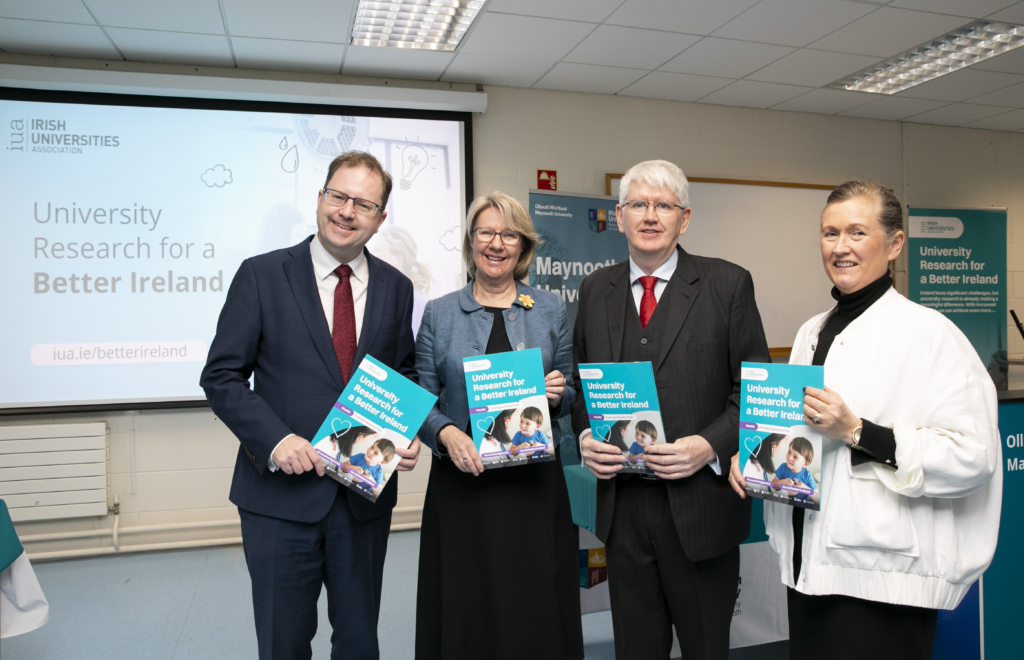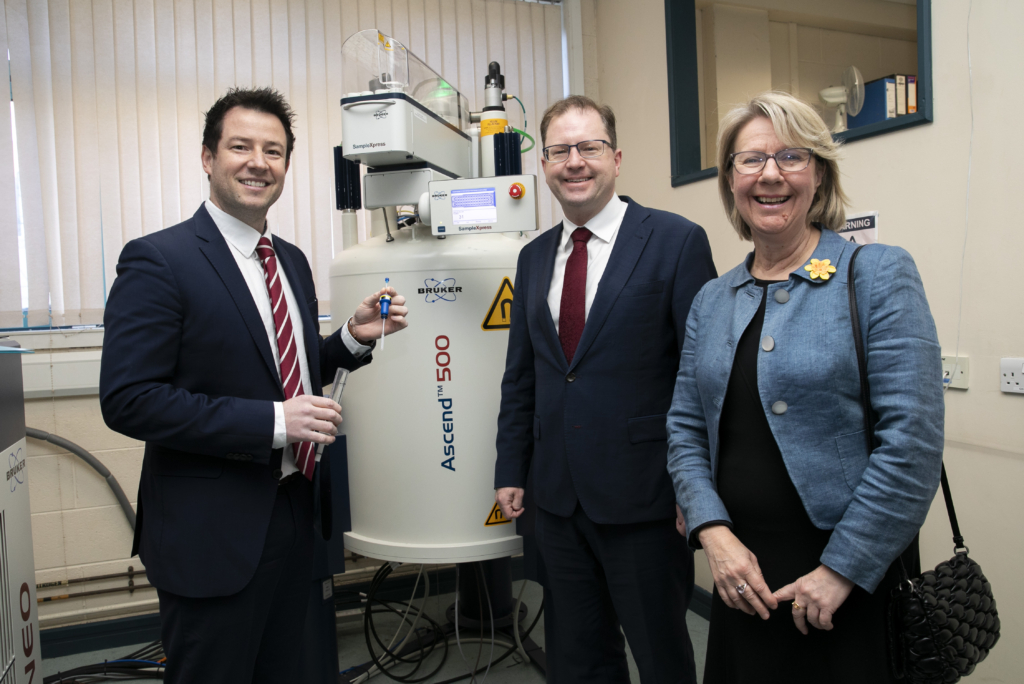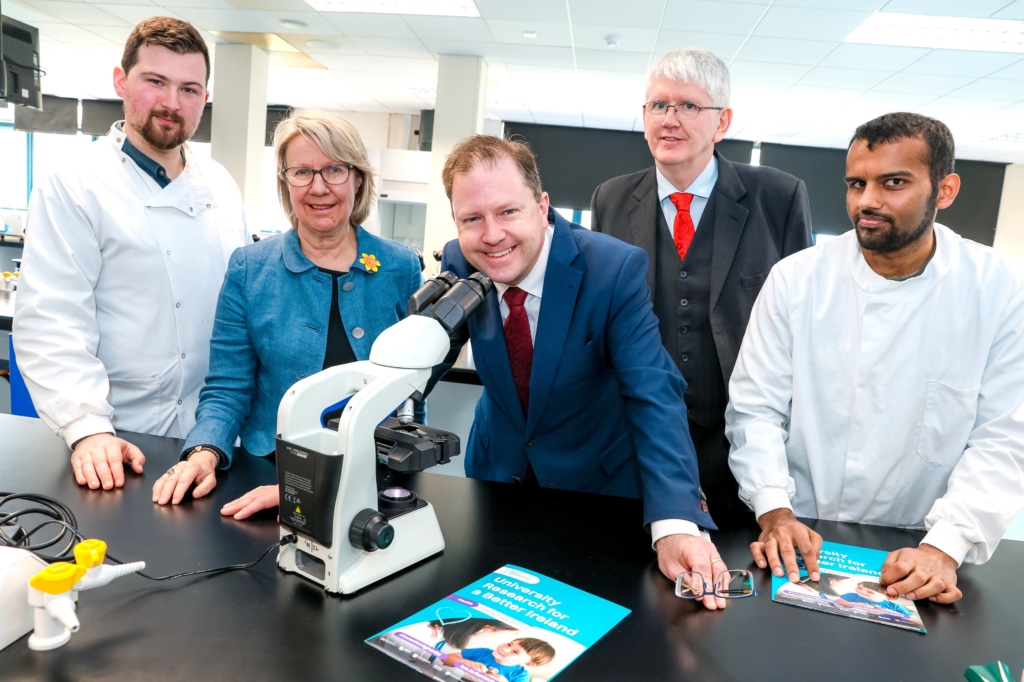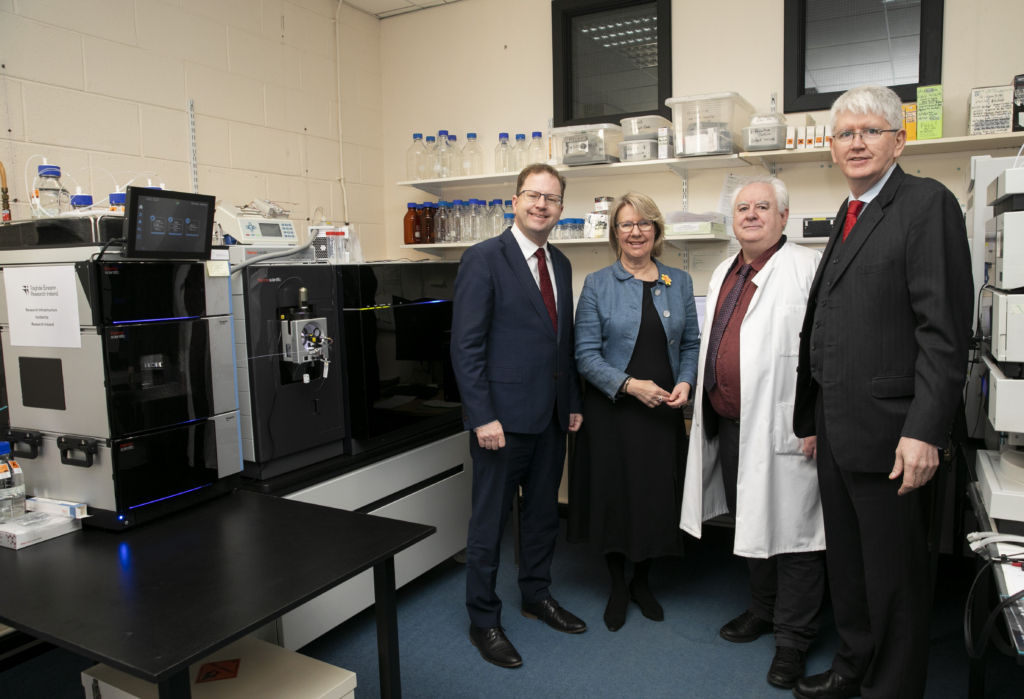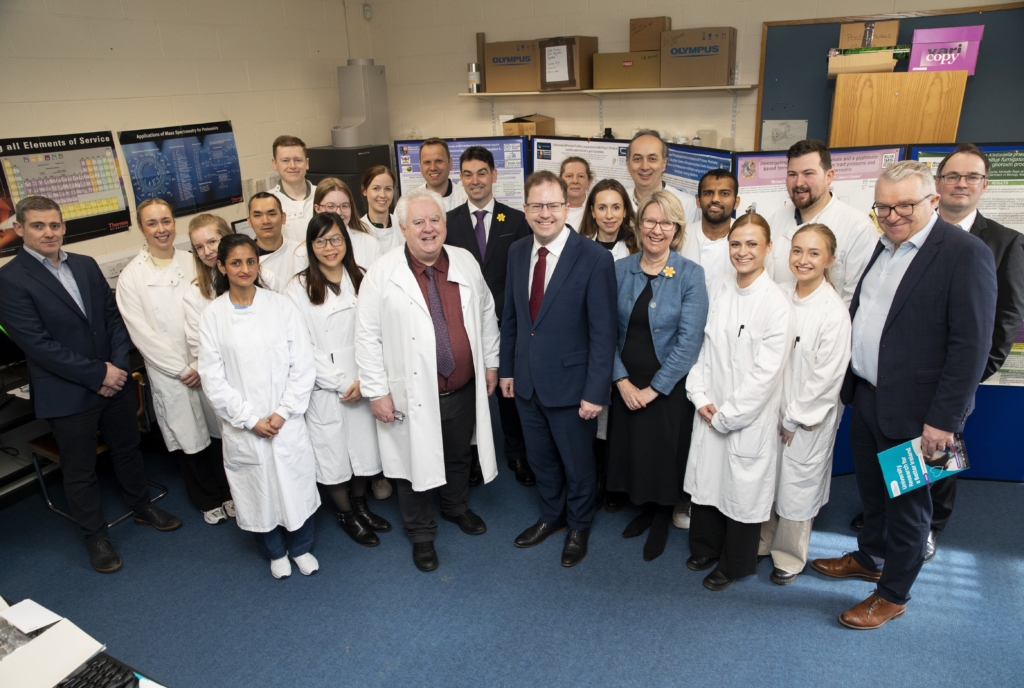Increased investment in research is key to Ireland’s future economic security, say universities
Minister Lawless launches campaign to highlight positive impact of research
28.03.25 The Irish Universities Association (IUA) has said that increased public investment in research is the best way to protect the Irish economy from external threats such as US tariffs, ongoing war in Europe, and escalating climate change.
This call to action follows the Programme for Government commitment to increase research investment as preparations to revise the National Development Plan – the all-of-Government multi-annual plan for capital expenditure – gets underway.
Minister for Further and Higher Education, Research, Innovation and Science, James Lawless TD today launched University Research for a Better Ireland, an initiative by the IUA to highlight the positive impact of university research on tackling major societal and economic challenges. The launch, at the Kathleen Lonsdale Institute for Human Health at Maynooth University, highlighted the impact of university research on everyday lives across health, housing, climate, energy, water, farming and education.
Professor Eeva Leinonen, President of Maynooth University and Chair of the IUA, said:
“Ireland stands at a critical juncture. As we face increasingly complex global challenges—whether economic volatility, climate disruption, or geopolitical uncertainty—the most sustainable investment we can make is in our people, our knowledge, and our capacity to innovate. Research is not a luxury—it is a national imperative.”
The IUA has proposed a new five-year, €600 million programme, administered by the Department of Further and Higher Education to deliver the following:
- Upgrades to outdated research equipment.
- New Technology Expertise Hubs to support collaboration between research institutions through the provision of centralised equipment and technical specialists.
- The recruitment and training of 500-600 extra PhD students.
Prof. Leinonen continued:
“The Programme for Government rightly recognises this, and we now have an opportunity through the National Development Plan review to act with ambition. The returns on research investment are profound: healthier communities, more resilient infrastructure, sustainable agriculture and energy, and the transformative impact of education. By deepening our commitment to research today, we secure not just economic competitiveness, but a more just, creative, and future-ready Ireland.”
During the launch the Minister was shown a critical piece of research equipment, an NMR Spectrometer, that allows scientists to study molecules at an atomic level, supporting advances not only in medicine but also in drug development and food science. Thanks to an investment from DFHERIS through the Higher Education Authority and Maynooth University, this essential piece of aging equipment has been given a new lease of life, enabling researchers to continue tackling real-world challenges with cutting-edge science that improves lives every day.
The University’s NMR Spectrometer has made a number of breakthroughs possible at Maynooth University where state-of-the-art chemical science is being applied to transform the lives of those living with the genetic skin condition Epidermolysis Bullosa (EB). With the support of government investment, researchers are developing ‘spray-on, wash-off’ bandages—an approach that could spare EB patients the excruciating pain of traditional bandage changes.
Ends.
Additional Notes:
This call for investment in research in Irish Universities is supported by an IUA policy paper on the establishment of a new Research Infrastructure and Talent Development Fund. The paper identifies three key investment strands, which are as follows.
- Equipment renewal. A €50m annual five-year equipment renewal programme would modernize outdated research infrastructure in the €20k-€500k range, align upgrades with institutional strategies, and enhance sustainability. A subsequent annual allocation would maintain facilities, support research-led teaching, and safeguard Ireland’s global competitiveness by ensuring cutting-edge equipment and long-term resource efficiency
- New Infrastructure. A €50m annual five-year programme would establish Technology Expertise Hubs, centralizing advanced equipment and technical expertise for shared use. By requiring institutions to lead bids, the programme would foster collaboration, ensure alignment with national research priorities, and support strategic planning. Proposals would include access plans, cost calculators, and lifecycle management, including funding for technical staff, ensuring sustainable infrastructure and transformative impacts on research, innovation, and global competitiveness.
- Talent Excellence. A €100 million national fund to leverage EU funding through the MSCA COFUND would enable the recruitment and training of 500 – 600 PhD students and postdoctoral researchers. Aligned with the 16 key themes from “Creating Our Future,” based on 18,062 public submissions, this initiative – addressing critical national priorities such as health, housing, and climate action – would provide a unique opportunity to turn public engagement into actionable research agendas, driving societal impact.
The University Research for Better Ireland campaign highlights how university research directly address real-life societal challenges including:
- Healthcare: Innovative research at Maynooth University is using state-of-the-art chemical science to transform the lives of those living with the genetic skin condition Epidermolysis Bullosa (EB). With the support of government investment, researchers are developing ‘spray-on, wash-off’ bandages—an approach that could spare EB patients the excruciating pain of traditional bandage changes
- Flooding: So many of our citizens are suffering the devasting effects of flooding with rising risks in the years ahead. UCC researchers use satellite imagery and data analysis to predict floods, providing real-time information for proactive management of extreme weather events.
- Housing: In Ireland, there is a growing need for energy efficient homes with cost-effective insulation. Researchers from DCU are taking old clothing made from fossil fuels and turning it into external insulation for houses. This also tackles the need to effectively reuse textile waste, which otherwise ends up in landfill or is incinerated.
- Farming: UCD’s research on an Irish algal biostimulant reduces chemical fertiliser use by 25% without lowering crop yields, helping protect water quality and support sustainable farming.
- Protecting lives: With a devasting figure of approximately 1,000 men suffering fatal heart attacks in Ireland every year, University of Galway researchers are developing wearable and implantable sensors to alert high-risk patients of impending heart attacks.
- Drinking water: With increasing boil water notices across the country, TCD’s graphene-based filtration technology offers a cost-effective, scalable solution by removing heavy metals, bacteria, and viruses to improve water quality.
- Energy: In 2020, the transport sector in Ireland accounted for ~20% of greenhouse gas emissions. Researchers at the University of Limerick are advancing next-generation batteries for electric vehicles and large-scale energy storage, advancing a cleaner, more sustainable future.
More information on the campaign can be found at www.iua.ie/betterireland
